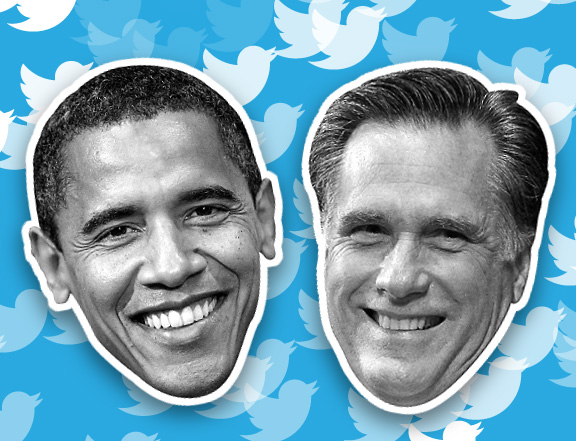Presidential debates were not always a soapbox for ideological soundbites. During the heyday of the famous Lincoln-Douglas debates of 1858, debates lasted several hours and dared to tackle policy nuances. Then, technology shot critical thinking in the head: radio forced once-complex messages into Twitter-like sound bites; television rewarded style over substance; and these days, users’ social media feeds are covertly manipulating the public into a partisan echo-chamber before they have a chance to objectively evaluate the speeches for themselves.
Here’s what changed – and why this “debate theatre” became an acceptable norm.
How It Used To Be
To get a taste of just how much debates have changed, take historian Neil Postman’s description in Amusing Ourselves to Death:
On October 16, 1854, in Peoria, Illinois, Douglas delivered a three-hour address to which Lincoln, by agreement, was to respond. When Lincoln’s turn came, he reminded the audience that it was already 5 p.m., that he would probably require as much time as Douglas and that Douglas was still scheduled for a rebuttal. He proposed, therefore, that the audience go home, have dinner, and return refreshed for four more hours of talk. The audience amiably agreed…”
Each one of these evening-long debates built upon one another, as Lincoln and Douglas traveled from town-to-town. America eagerly consumed notes from the traveling debates, as it was (rightly) believed that even several hours’ worth of genuine discussion wasn’t enough to fully flesh out all the complexities of domestic and international issues.
By contrast, this was the opening to the first presidential debate between McCain and Obama in 2008:
[Moderator Jim Lehrer]: “At this very moment tonight, where do you stand on the financial recovery plan? First response to you, Senator Obama. You have two minutes.”
“They wouldn’t be considered debates by our standards,” said Scott Wunn, executive director of the National Forensic League, a large education nonprofit that helps coordinate most of the nation’s extracurricular high school speech and debate.
So, how did we go from Plato’s Academy to the Academy Awards in a century? Technology is the culprit, I am sad to say.
Radio: Twitter-Like Simplification Decades Before Social Media
For much of political life, at least since the Ancient Greeks, unbounded orations were a staple of any statesman’s arsenal. William Henry Harrison, known for America’s shortest presidency, forcefully insisted on giving his inaugural speech in spite of the dreadfully cold, wet weather. After a nearly two-hour speech, he eventually contracted a fatal bout of pneumonia and died with his conviction to cherish the time-honored tradition of speech-giving.
Then, technology crashed the nuance-happy party. “By the 1920’s, radio broadcasts had replaced mass meetings and all-day orations,” writes Mark Lawrence Kornbluh, in his historical account of why American voter turnout plummeted from a high of +80 percent in the late 19th century to its dismally low numbers today. “As the role of voters became increasingly passive, it is little wonder that their enthusiasm for electoral politics waned.”
Radio inflamed a subtle, yet revolutionary new feature of political discussion: word count limits. Hourly broadcast rates were expensive, and spotty coverage meant speeches had to be replicated by oratorical monks for each local network, according to Kathleen Hall Jamieson, communications at the University of Pennsylvania. Both parties embraced the relatively shorter soap-opera entertainment of the age, complete with musical interludes and celebrity voices.
Recognizing the creeping infiltration of advertorial campaigning, in 1936 NBC and CBS made an ill-fated attempt to ban “dramatized” political argument. The well-intentioned project ultimately failed because less scrupulous stations were willing to accept salacious campaigning for big bucks.
In a generation, substance was dying.
The Nail In The Substance Coffin: Television, Makeup, and A Killer Five-O’Clock Shadow
“It was the TV more than anything else that turned the tide,” recalled President John F. Kennedy, in the historical debate with Richard Nixon, which rocketed Kennedy from estranged Catholic underdog to fresh-faced political celebrity. The TV-coached Kennedy looked straight into the camera with his perfect makeup, towering over the sickly Nixon, weak from a recent hospitalization, who gazed down at the audience with an un-presidential five-o’clock shadow.
Recent experimental evidence, subjecting participants to either audio or televised versions of the debate, would confirm what many already assumed back then: on television, it’s style over substance. The most recent evidence on debates from 2012 shows that higher quality picture is exaggerating the problem: in 2008, participants who watched McCain on a high-definition television had a more negative opinion about him and were more sensitive to his age.
TV exploited the new American electorate, whose collective civic IQ had been dulled by mass entertainment. Social psychologists call this effect the elaboration likelihood model, where knowledgeable listeners are more attuned to the content of a speaker’s words and confused listeners look to proxies of expertise, such as poise or confidence.
Media kingpin and Fox News President Roger Ailes is a master at exploiting this public vulnerability. While coaching Rudy Giuliani during his run for office, he scolded him for offering a nuanced, multi-pointed argument. “I agree with all of those things,” wrote Giuliani, recalling Ailes’s advice, “You get an A for education–and an F for communication.” Ailes ranted on:
This isn’t the United States Court of Appeals. Judges would remember those four points, and they’d write them all down. But, people at home aren’t sitting there with a score-card. Education–immediately, what does that say to you? Children. You have two minutes. The way you answer that question is, “I care greatly about children. I have my own. I’ve always loved children and I care about them. And I realize that the future of our city is built around children. So the core of my concern about education will be to make the educational system exactly like that, built around the children.”
More recently, a conservative website experimented with a Twitter townhall for the Republican primary, wherein candidates would respond on Twitter to common debate questions. For instance, when asked about the economy, Rick Santorum tweeted, “the federal govt kills jobs!” After comparing his answer on the question to his previous televised debates, I couldn’t the tell the difference between 140 characters and a 2-minute response. In an unfortunate turn of convenience, the Twitter town hall gave me all the information in a fraction of the time.
.@140townhall the federal govt kills jobs!
— Rick Santorum (@RickSantorum) July 20, 2011
Yes, It Gets Worse And Realtime Social Media Is The Problem
While the “debate” in debates has nearly vanished, it can get worse. Realtime feedback during debates distorts viewers’ opinions of the speeches before they even have a chance to form their own opinion. Wired points to recent research looking at viewers who were exposed to a scrolling graph of audience opinion (a “worm”), which dipped and rose as a focus group gave feedback on speeches in realtime. “The responses of a small group of individuals could, via the worm, influence millions of voters. This possibility is not conducive to a healthy democracy.” Warn the researchers.
Twitter and Facebook chatter is the equivalent of a real-time ticker. And, because social media has a well-known young, liberal bias, and that users tend to insulate themselves in an echo-chamber of like-minded friends, it’s improbable that anyone with a less-than-highly informed opinion would take the other side seriously, even if they wanted to.
As someone who normally is wildly optimistic about the impact of technology on democracy, presidential debates are one area in which innovation has yielded nothing but mindless drivel to the presence of civil society. The only hope for a return to legitimate debate is to take them off TV and to link debate questions across sessions. A good debate, which genuinely deals with every major domestic and international issue, would be dozens of hours long. If we sliced out just a fraction of the time devoted to campaigning stumping and horse race coverage, we’d have plenty of room. But, I’m not hopefully that will happen.
So, when I tune in tonight, rather than tear my hair out watching the talking-points ping-pong, I’m going to drink myself into a stupor of acquiescence, with a shot of whiskey for everytime “small government” or “fairness” is uttered. I expect to blissfully pass out well before any “rebuttal.”
































Comment